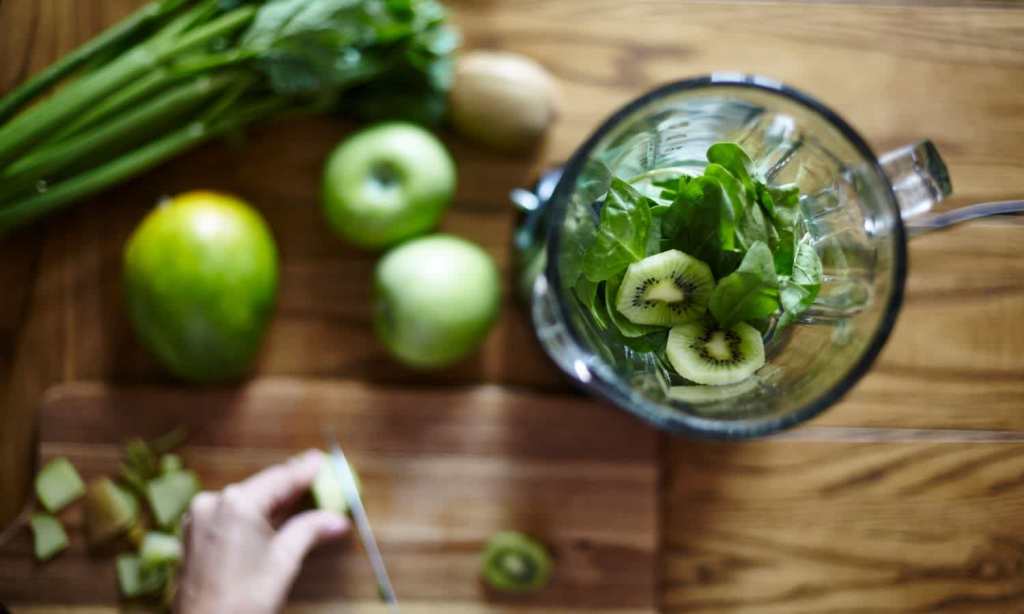If you were on the internet any time in mid-December, you would’ve seen the endless coverage of Lizzo and her so-called 10-day smoothie detox. Nevermind the fact she’s a Grammy award-winning artist, let’s focus on her body.
Now, we’re not here to dictate what a woman chooses to put in her body. But, we are here to talk about detoxes. Not about how you can undergo a “quick-fix” detox – they’re dubious at best, not scientifically proven and dangerous at worse – but how it’s already a natural occurrence within your body, that doesn’t need “divine” (read: fad) intervention.
The Latch spoke to endocrinology doctor Dr Izzy Smith, who’s also known as a “pseudo-science debunker”, about all things detoxing – the naturally occurring kind.
What is detoxing?
The first thing Dr Izzy Smith wants us to know is that the medically correct term is actually ‘detoxification’. And what is it?
“It’s a critical function of the human body and without it, we would quickly get very sick or worse,” says Dr Izzy Smith. “Detoxification refers to the removal of active metabolites or potentially toxic substances from the body.”
In terms of what these substances are, they “could be by-products of normal cellular metabolism such as ammonium or carbon dioxide.” They may even be from things that we ingest, including the by-products of alcohol metabolism or medications.
How does the body naturally detox?
Dr Izzy Smith clarified that the process usually involves the liver and two steps. The first is reduction and oxidation. The second is making it safe to be excreted out of the body – via kidneys or stool.
If you’re still stuck on the “usually involves the liver” line above, it’s because our lungs and our skin also play a role in detoxification and the removal of waste products.
How can I support this natural detox?
Luckily, “our body’s systems at detoxing are incredibly effective.” The best thing to support this process is continuing to look after these “incredible organs” so “they can do their job the best they can.”
One easy step you can take includes drinking enough water to support your kidney health. Moderating alcohol consumption is another one – a good excuse to test out Dry January. Maintaining a healthy weight is also important, as it helps avoid inflammation in the liver.
Incorporating Vitamin B into the diet is also important, as it’s an “important co-factor enzyme in the reduction/oxidation part of detoxification.” You can find it in cheese, eggs and milk, fish like tuna and salmon, dark green vegetables (think spinach and kale), and more.
A balanced diet that includes a variety of plants and a whole lot of fibre, along with regular exercise, helps both good digestive and overall health – and supports the natural detoxification processes.
And for those who have intentions to quit smoking as a New Year’s goal? Kudos! An added benefit, according to Dr Izzy Smith: “Not smoking is one of the best things you could do to support natural detoxification and prevent unnecessary toxins coming in.”
What about detox teas?
From personal experience, this is a one-way ticket to spending way too much time on the toilet each day (read: it’s a laxative effect).
Dr Izzy Smith agrees, saying “Detox teas are a strong laxative which, if used in the long-term, can do irreversible damage to the large bowel.” Other commercial detoxes are also non-evidence-based, and are “usually just a low-calorie diet.”
One thing she made sure to point out was that “none of the commercial detoxes or cleanses actually mention which ‘toxins’ they are removing or the mechanism of how they’re removing them.”
In her opinion, the word ‘detox’ and the word ‘cleanse’ are just marketing tools to sell diets or supplement. If you are concerned your body isn’t feeling or working right, seeing a doctor is the best thing to do.
What was the deal with Lizzo’s detox then?
As Dr Izzy Smith says, these kind of detoxes are “just well-marketed rubbish.”
“This was just essentially a low-calorie diet. She consumed high nutrient foods and likely felt better or more energised by improving her insulin sensitivity, not consuming any alcohol, and decreasing intake of ultra-processed foods.”
She continues: “There is nothing wrong with wanting to lose weight or improve your health.” The issue lies with claiming it was a detox, or that she felt better from toxins being removes – “[It’s] medically incorrect.
If you’ve come all this way and you’re still not sure, here’s one last reminder from Dr Izzy Smith: “Our own bodies do a spectacular job of detoxing. If they weren’t, it would be a medical emergency.”
Read more stories from The Latch and follow us on Facebook.

